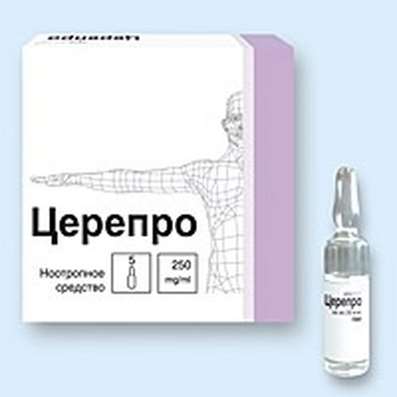Betaserc (Betahistine, Betahistinum) - improves microcirculation.
Betaserc (Betahistine) acts mainly on the histamine H1 and H3 receptors of the inner ear and vestibular nuclei of the central nervous system. Through direct agonistic effect on H1-receptors of the inner ear blood vessels, as well as indirectly through its impact on H3 receptors improves microcirculation and permeability of the capillaries, and normalizes the pressure of the endolymph in the labyrinth and the cochlea. However, betahistine increases blood flow in the basilar arteries. Betaserc also has a strong central effect due to the effect on H3 receptors nuclei of the vestibular nerve. It normalizes the conductivity of neurons in the vestibular nuclei in the brainstem level. Clinical manifestation of these properties is to reduce the frequency and intensity of vertigo, reduction of tinnitus, improvement of hearing in the case of its reduction.
Testimony:
- vestibular vertigo;
- syndrome characterized by dizziness and headache, tinnitus, progressive hearing loss, nausea and vomiting;
- disease / Meniere's syndrome.
Contraindications:
- hypersensitivity to any component of the drug;
- pheochromocytoma;
- gastric ulcer and duodenal ulcer in the acute phase.
Pregnancy and breast-feeding:
The available data on the use of betahistine in pregnant women is not enough. The potential risk for humans is unknown. Betahistine should not be used in pregnancy except where absolutely necessary.
It is not known whether betahistine is excreted in breast milk. It should not be prescribed the drug during breastfeeding. The appointment Betaserc mother drug should be taken only after a comparison of the benefits of breastfeeding to the potential risk to the infant.
Special instructions:
Risk on tablets 24 mg is intended for breaking the tablet in order to facilitate swallowing and is not intended to divide it into 2 equal doses.
Effects on ability to drive vehicles and management mechanisms
Betahistine does not or only slightly affect the ability to drive and operate the mechanisms in clinical studies adverse reactions that would not affect the ability of such identified.
Suggested Use:
The drug is prescribed inside during the meal. The dose should be individualized depending on the response to treatment.
For adults, the dose is 24-48 mg / day.
The dose / frequency rate of reception:
Betaserc 8 mg - 1-2 tablets 3 times a day.
Betaserc 16 mg - 1 / 2-1 tablets three times a day.
Betaserc 24 mg - 1 tablet 2 times a day.
16 mg tablet 24 mg tablet can be divided into two equal parts. To do this, place the tablet on a hard surface Valium up and put pressure on her thumb.
Improved sometimes observed only after several weeks of treatment, a stable therapeutic effect - after several months of treatment. There is evidence that the use of the drug at the beginning of the disease to prevent its progression and / or hearing loss in later stages.
Despite the limited data from clinical studies, extensive post-registration experience suggests that dose adjustment in elderly patients is not required.
Special clinical studies in patients with renal and / or hepatic impairment have not been conducted, but the post-registration experience gives reason to believe that dose adjustment in these patients is not required.
Overdose:
Symptoms: slight and moderate nausea, drowsiness, abdominal pain have been observed in some patients after administration of the drug at doses up to 640 mg. More serious complications (spasm, cardiopulmonary complications) were observed at the deliberate acceptance of betahistine in high doses, especially in combination with other drugs overdose.
Treatment: symptomatic therapy.
Packaging:
- Comes in original packaging. Item is brand new and unopened.
Storage:
- Keep away from direct sunlight.
- Keep locked and away from children.
- Store in dry place at room temperature.
- Do not exceed storage temperature higher than 25 C
Important notice- the outer box design may vary before prior notice!

 Cart
Cart





